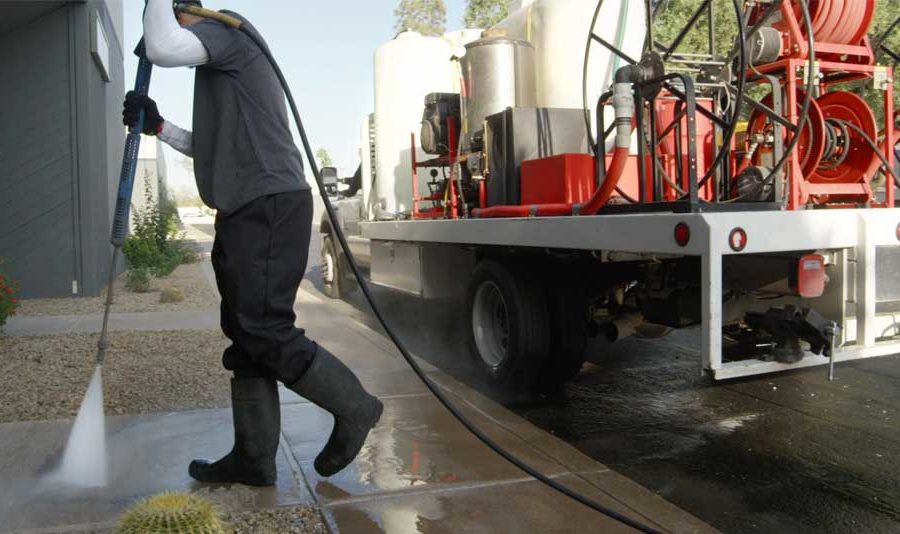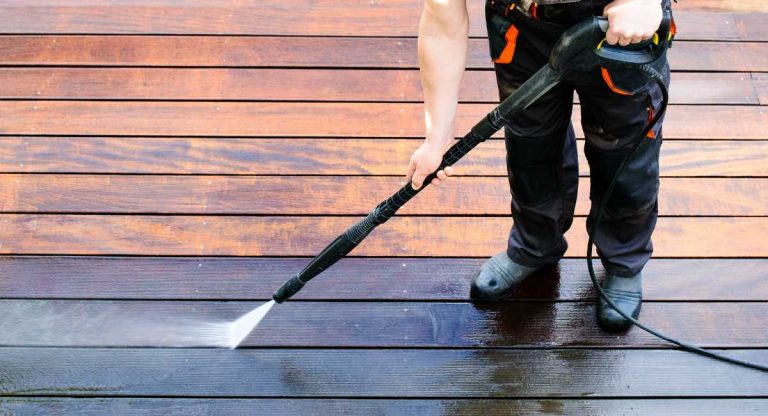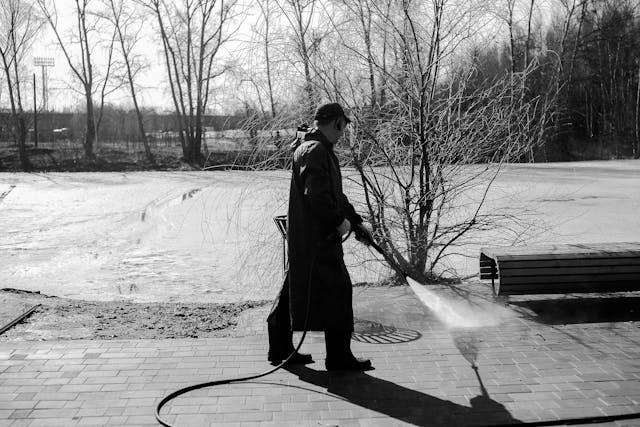
Not all pressure washers are created equal — and neither are the jobs they’re hired to handle. Whether you’re cleaning delicate brickwork, preparing your property for sale, or restoring surfaces after years of neglect, sometimes a general power washing service just won’t cut it. 🧼✨
In this article, we’ll explore when it makes sense to hire a specialist instead of a generalist, what types of specialists are out there, and how to determine whether your cleaning job calls for one. Let’s dive in. 💦
🤔 Generalist vs. Specialist: What’s the Difference?
A general pressure washer is often a jack-of-all-trades. These contractors handle standard jobs like:
- Driveways and sidewalks
- Vinyl siding
- Decks and patios
- Gutters
- Garage floors
They’re great for homeowners who need routine exterior maintenance done affordably and quickly. ✅
A specialist, on the other hand, focuses on:
- Unique materials or surfaces (e.g., historic brick, marble, stucco)
- Challenging environments (multi-story buildings, rooftops)
- Highly regulated cleaning jobs (graffiti removal, eco-sensitive zones)
- Niche markets (solar panels, commercial signage, fleet washing)
Specialists usually invest in advanced tools, custom detergents, and extra training to handle jobs with precision. 🧪🔬
🏠 When You’re Dealing With Delicate Surfaces
If your home features:
- Old or historical materials like soft brick or antique masonry
- Stucco, which can crumble under high pressure
- Wood siding that may splinter or rot easily
- Painted surfaces that shouldn’t be stripped
…you likely need a soft washing specialist. 🧴
Soft washing uses lower pressure with tailored detergents that gently lift dirt without damaging fragile materials. General power washers may unintentionally etch or scar these surfaces, leading to costly repairs. 🚫
Browse Amazon Here For Soft Washing Equipment And Accessories
🧱 Masonry, Brick, and Stonework Restoration
Restoring stone walls, pavers, or aging brick structures requires deep knowledge of how porous surfaces behave under water pressure. A masonry cleaning specialist can:
- Prevent moisture intrusion that leads to internal cracking
- Choose pH-balanced cleaners that won’t stain or corrode
- Spot signs of structural damage that shouldn’t be washed yet
They may also seal surfaces after cleaning to protect against water penetration — something many generalists don’t offer.
If your goal is restoration rather than just a rinse, a specialist is the smart call. 🏛️
🧼 When Chemicals or Eco-Sensitive Areas Are Involved
If your cleaning job involves:
- Graffiti removal on sensitive public structures
- Grease or oil cleanup from commercial parking areas
- Waste runoff near storm drains, streams, or landscaping
- Mold or mildew treatment on porous outdoor surfaces
…you need a specialist trained in environmentally compliant cleaning. 🌱♻️
These pros understand which detergents are:
- EPA-compliant
- Safe for pets and plants
- Suitable for concrete vs. wood vs. vinyl
- Allowed under municipal runoff rules
Hiring a generalist without this expertise could result in property damage or fines. 😬
Browse Amazon Here For Eco-Friendly Pressure Washing Detergents
🧗♂️ For Difficult or Dangerous Access
Cleaning jobs that involve:
- Roofs and multi-story siding
- Commercial signage or awnings
- Apartment buildings or high windows
…require a specialist with certified rigging equipment, lift access, or harness safety protocols. 🪜🏢
General power washers may not have the gear or insurance to handle these situations. A roof cleaning specialist, for instance, knows how to navigate shingles without causing leaks or voiding warranties. 🏠
Always ask: “How do you access high or sloped surfaces safely?” If the answer is vague, look for a pro.
🚚 When Hiring for Commercial or Industrial Jobs
If you’re cleaning:
- Storefronts or warehouses
- Dumpster pads
- Equipment fleets or heavy machinery
- Parking structures
…then a commercial pressure washing contractor is your best bet. 🧯
They bring:
- Heavy-duty hot water machines
- Degreasers and industrial-strength cleaners
- Water recovery systems (to comply with EPA regulations)
- Scheduling flexibility for after-hours work
Generalists often lack the scale or training for these projects. You don’t want someone learning on your job. ❌
Browse Amazon Here For Commercial Pressure Washers And Accessories
💸 Does Hiring a Specialist Cost More?
Usually, yes. Specialists charge a premium for:
- Their expertise and training
- Specialized tools and detergents
- Insurance and certifications
- Risk management (especially for tall or fragile structures)
But this extra cost often saves you more in the long run, by:
- Preventing damage
- Avoiding rework
- Increasing longevity of surfaces
- Meeting commercial or municipal standards
Spending $100 more now could prevent $1,000 in repairs later. 💵
🧾 How to Find the Right Specialist
Ask the following questions during your search:
✅ What kind of jobs do you specialize in?
✅ What surfaces do you work with most?
✅ Can you provide photos or references from similar work?
✅ Are you licensed and insured for high-access or hazardous jobs?
✅ What’s your cleaning process for this specific material?
Check platforms like:
- Google and Yelp for reviews
- Contractor directories (Angi, HomeAdvisor)
- Local Facebook groups or HOA recommendations
📌 Tip: Look for contractors who educate, not upsell. A good specialist will explain why a certain method or detergent matters — not just quote a price and run.
🧠 Final Thoughts
General power washers are great for routine exterior maintenance. But when the job involves:
- Delicate materials
- High-value surfaces
- Environmental concerns
- Hard-to-reach areas
- Commercial properties
…it makes sense to call in a specialist. The peace of mind and professional results are well worth it. ✅
Browse Amazon Here For Top Rated Power Washers And Accessories






